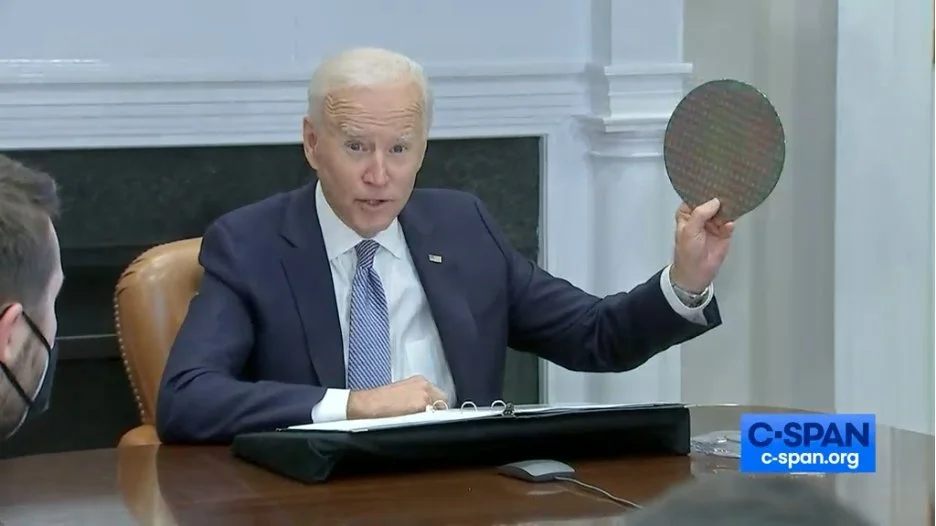King Cotton
Cotton is King. That was true in 1860 and it is true today. Like the cotton States in the South, the USA of today import manufactured goods and export cotton. However, relying on trading cotton for imports brought down the South and it will bring down the USA today.
During the War Between the States (1861-1865), the strategy of the South was to starve European manufacturers of cotton- the lifeblood of their economy. Both the USA and the CSA blocked Southern cotton growers from exporting their ware. The USA wanted to bankrupt the South into submission and the CSA wanted to bankrupt the European empires (Britain and France) into helping in their war for independence.
The strategy of the Southern cotton states was expressed by Senator James Hammond of South Carolina when he said,[1]
“Without firing a gun, without drawing a sword, should they make war on us we could bring the whole world to our feet […] What would happen if no cotton was furnished for three years? I will not stop to depict what everyone can imagine, but this is certain: England would topple headlong and carry the whole civilized world with her, save the South. No, you dare not make war on cotton. No power on earth dares to make war upon it. Cotton is king.” -James Hammond, US Senator from South Carolina, speaking in the Senate on March 4, 1858
The American cotton trade is even more profitable today because cotton was sold by weight in 1860; but, today the USA can print $100 instead of $1 on the same weight of cotton paper and foreigners will exchange $100 worth of goods or services instead of $1.
According to the Bureau of Engraving and Printing at the U.S. Department of the Treasury’s website, [2]
“The ordinary paper that consumers use throughout their everyday life such as newspapers, books, cereal boxes, etc., is primarily made of wood pulp; however, United States currency paper is composed of 75 percent cotton and 25 percent linen.”
The USA import what we need because foreigners want our King Cotton dollar just like they wanted the South’s King Cotton. Foreigners willingness to buy our King Cotton dollar at our set price is illustrated by the US trade deficit hitting an all-time record high in February 2021. According to Lucia Mutikani in “U.S. trade deficit hits record high as economy gains speed,” [sic] writing for Reuters,[3]
“The trade deficit jumped 4.8% to a record $71.1 billion in February, the Commerce Department said on Wednesday.
[…]
Exports dropped 2.6% to $187.3 billion.
[…]
Imports slipped 0.7% to $258.3 billion.”
The modern USA can even deny nations access to our cotton dollar via sanctions, as the CSA did with a self-imposed blockade.[4]
However, if foreigners don’t want our dollars and use other money, we’ll only by able to consume as much as we produce for trade. That will be a depression by definition.
On April 5, Russia even hinted that they may soon stop using the SWIFT system to settle transactions. Anna Baydakova writing at Coindesk in an article titled, “Fearing Being Cut Off From SWIFT, Russia Hints About Blockchain Alternative: Report,” reports,[5]
“The development of blockchain and digital currencies shows that in the future, global settlements might take place on a new technological platform rather than on the SWIFT payments network, said the deputy head of Russia’s Ministry of Foreign Affairs, Alexander Pankin, talking to the RIA Novosti news agency on Monday.
[…]
The statement comes after the country’s authorities voiced concerns recently that Western countries might cut Russia off from the SWIFT. In late March, the press secretary for Russia’s president, Vladimir Putin, said the Kremlin ‘cannot rule out’ that threat.”
SWIFT stands for Society for Worldwide Interbank Financial Telecommunication. It is the computer system that nations and businesses use to trade dollars around the world, regulated by the USA. The implication is that Russia and others may be ready to ditch the dollar in trade.[6]
According to Jaqueline White writing for The Street,[7]
“The Society for Worldwide Interbank Financial Telecommunication (SWIFT) is the network that banks and other financial institutions use for transferring information securely. Most major financial institutions use SWIFT, as it is considered the gold standard for reliable and secure financial messaging.
[…]
Another important service that SWIFT offers is various tools for enforcing financial law and flagging financial crimes. Some of the services they offer include reporting tools for client background checks for investment firms and government sanction violations, as well as flagging and enforcing anti-money laundering regulations.”
Indeed, the current strategy is to print and export as many dollars as possible for stimulus, while the cotton dollar is still king. However, if printing money endlessly worked, then Zimbabwe would be a rich country.[8]
During the War Between the States, the South’s over reliance on cotton caused other nations to start growing their own, notably in British India and (soon to be British) Egypt. Thus the South could not import the war material needed and lost the war (being outnumbered and having captured and runaway slaves turn into US soldiers instead of POW’s did not help). Today, the US’ reliance on the king cotton dollar has made us vulnerable to an import depression.
Like the cotton States in the South, the USA of today import manufactured goods and export cotton. However, relying on cotton brought down the South and it will bring down the USA today.
Hopefully, yall got some silverware buried underneath the rose bushes.
"Lenin was certainly right. There is no subtler, no surer means of overturning the existing basis of society than to debauch the currency. The process engages all the hidden forces of economic law on the side of destruction, and does it in a manner which not one man in a million is able to diagnose." -John Maynard Keynes, The Economic Consequences of the Peace, Chapter VI pg 236
End Note: The symbol for the US Dollar Index on the New York Stock exchange is DXY and is pronounced “Dixie.”[9]
[1]https://www.battlefields.org/learn/articles/cotton-king
[2]https://www.moneyfactory.gov/hmimpaperandink.html
[4]https://www.hinrichfoundation.com/research/tradevistas/protectionism/us-dollar-economic-sanctions/
[6]https://www.rt.com/business/488928-russia-dumps-us-dollar-debt/amp/
[7]https://www.thestreet.com/personal-finance/education/what-is-swift-14923366
[8]https://www.hamiltonmobley.com/blog/qwh1dxu9etc4kdgxkn27ti1yqt7uhf






